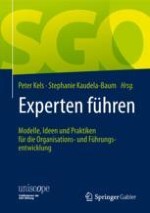2019 | OriginalPaper | Chapter
19. „Wer bin ich hier? Wer kann ich sein?“
Erkundung der Selbstkonzepte Hybrider Professionals im interdisziplinären Dazwischen
Authors : Jens O. Meissner, Patricia Wolf, Julie Harboe
Published in: Experten führen
Publisher: Springer Fachmedien Wiesbaden
Activate our intelligent search to find suitable subject content or patents.
Select sections of text to find matching patents with Artificial Intelligence. powered by
Select sections of text to find additional relevant content using AI-assisted search. powered by
